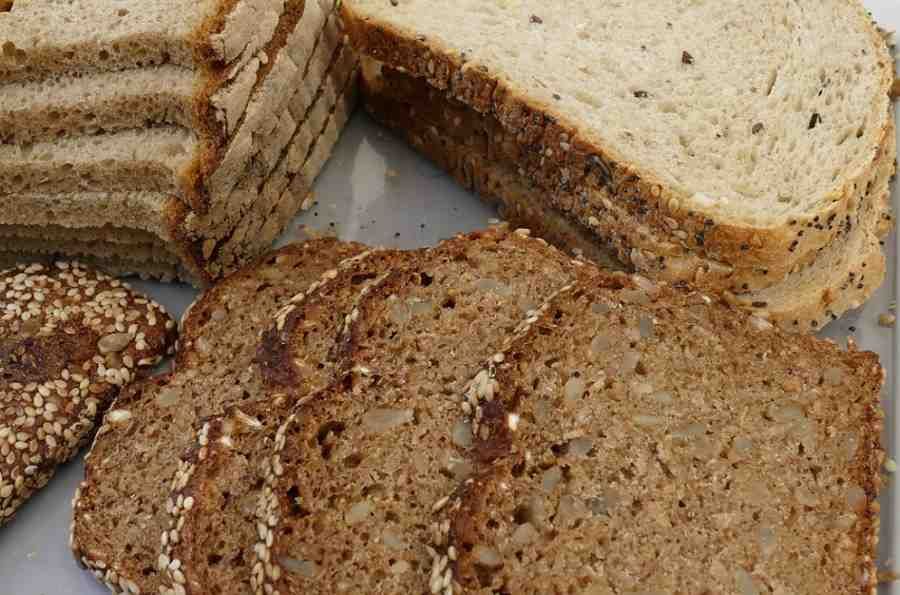Popular food additive linked to obesity and diabetes
A commonly used preservative – propionate – added to bread and pastry products can affect metabolism and consequently lead to insulin resistance and weight gain, according to a new study by researchers at Harvard University.
Researchers at Harvard T.H. Chan School of Public Health in human and animal studies have shown that propionate added to food triggers the „cascade of metabolic events”, which can lead to insulin resistance and weight gain. The study involved roalso scientists from Brigham and Women’s’s Hospital and Sheba Medical Center in Israel.
Propionate is widely used as a preservative and anti-mold additive in baked goods and productsoin pastry. It is also an ingredient in artificial flavor enhancers. It is used roalso in animal feed.
– Understanding howob Food components affect the body’s metabolism at the molecular and comorkowym can helpoc us in developing simple but effective measuresoIn the fight against the obesity and diabetes epidemic – explained Dr. Gökhan Hotamisligil of Harvard T.H. Chan School of Public Health, chiefowny author of the study, whichore appeared on the „Science Translational Medicine”.
Works, in whichorich combined data from a randomized placebo study in humans and mice showed that propionate can increase levels of several hormoneow associated with a higher risk of obesity and diabetes. Studies in rodents showed that chronic exposure to propionate caused weight gain and insulin resistance. Insulin resistance means that the body does not respond well to the hormone, whichory helps comorkom take sugar or glucose. Such resistance can lead to the high blood sugar levels observed in waspsob with diabetes.
Propionate is considered safe. It is a naturally occurring fatty acid produced by our gut bacteria when they break down fiber. But no one has yet studied the metabolic effects ofoin propionate when consumed as a food additive – wrote in the paper the authors of the study.
More than 400 millionow people around the world suffer from diabetes, and the incidence rate will increase by 40 percent. By 2040, despite extensive effortsoin an effort to reduce the disease. Rising rates of diabetes, as well as obesity, over the past 50 years indicate that environmental and dietary factors must be influencing the growth of this epidemic. The researchers suggested that ingredients present in the diet, including those used to prepare or preserve food, may be a factor in such.
In the new study, the researchers first administered propionate to mice, finding that it led to increased levels of several hormonesow. It is glucagon, whichory movire the liver to release sugar into the bloodstream, norepinephrine, whichora is involved in regulating blood pressure, as well as raising blood sugar levels, and the newly discovered fatty acid binding protein 4 (FABP4), whichore is involved in acid metabolismoin fatty.
Increasing levels of these hormonesow led the mice to produce more glucose and consequently hyperglycemia. In addition, the researchers found that rodents whoorim for an extended period of time (20 weeks) a dose of propionate was added to food, whichora was roequivalent to the amount normally consumed by humans, gained weight significantly and developed insulin resistance, in poroIn a study with mice, ktore not consuming propionate.
To see how these results translate to humans, the researchers conducted a study involving 14 healthy participantsow. Volunteers were divided into two groups and one of them received a meal thatory contained 1 gram of propionate – is the amount typically found in a meal of processed foods. The second group received a placebo.
Participants in the study had their blood drawn. First just before a meal, then 15 minutes after eating and at regular 30-minute intervals for four hours. Week poź later participants wrociliated to the laboratory, and those whooers originally given propionate received a placebo, and vice versa.
The study found that people whoowho consumed a meal containing propionate, had a significant increase in norepinephrine immediately after eating the meal, as roAlso glucagon and FABP4. The findings indicate that propionate may act as a metabolic disruptor, ktory potentially increases the risk of diabetes and obesity in humans.
– The dramatic increase in waspob obese and cases ofoin diabetes over the past 50 years suggests the involvement of a factoroin environmental and dietary. One such factoroin, whichory need attention, are components of ordinary food. We are exposed to hundreds of these chemicals every day, and most of them have not been specificallyolarly tested for potential long-term effectsoin metabolic diseases,” said Amir Tirosh of Heba Medical Center.
Someore earlier studies suggested that propionate and other fatty acids have beneficial effects when produced in our intestines by bacteria as a byproduct of metabolism. However, recent studies suggest that propionate in food does not have the same beneficial effectsow. Propionate is added to the productow food as propionic acid – E280, sodium propionate – E281, calcium propionate – E282.


